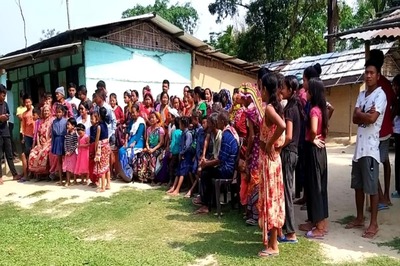
views
The monsoon brought much-needed relief to the citizens of our country, suffering through the unbearable heatwave in the past few weeks. However, the rainy season can prove to be a period of several infections, which can lead to serious health issues. Keeping that in mind, an expert has detailed the kind of infections to be on the lookout for and how to avoid.
During the monsoon season, children and the elderly are supposed to be taken care of the most, as they have a high risk of catching these infections. Dr Anita Mathew, the Director-General of Medicine at Fortis Hospital, Mumbai, discusses the common infections and conditions that rise rapidly during the rainy season and how to stay safe.
Malaria:
The cases of the mosquito-borne disease increase rapidly in the season. The doctor states that it can even claim the life of the patient, if not treated right. The symptoms of this infection include chills, fever, headache etc. The fever rises at a fixed time, and the patient may feel fine.
Measures to stay safe:
-Wear full-sleeved clothes.
-Keep your surroundings clean and invest in fogging.
-Avoid water accumulation, since these can become mosquito breeding grounds.
Dengue:
Another mosquito-borne disease is reported to be on the rise in rain, Dengue. The symptoms include chills, body aches, high fever, dehydration etc. A person suffering from dengue suffers from a dangerously low platelet count.
Measures to stay safe:
-Cover every utensil carrying water.
-Frequently clean water coolers and utensils with water.
Leptospirosis:
According to Dr Mathew, this condition is caused by bacteria. A person is at risk of this disease if they are exposed to dirty water for a long time. The bacteria are produced after the water gets contaminated with the excreta of animals like rats, squirrels or dogs. The symptoms include headache, vomiting, bleeding, no urination and jaundice in severe cases.
Measures to stay safe:
-Avoid being in dirty water.
-To keep it at bay wear boots or shoes that cover your feet.
-If you contracted contaminated water, make sure to clean your feet with soap and water.
Some other common infections also include respiratory problems and gastrointestinal infections.




















Comments
0 comment